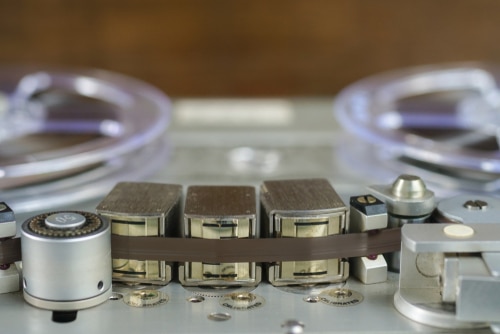JAHM offers to listen to the voices the Early 20th Century

Now, Joliet citizens can listen to the voices that sounded more than fifty years ago. The Joliet Junior College Library and Joliet Area Historical Museum (JAHM) have launched a joint project to digitized 55 audio recordings of more than 3,300 minutes of audio cassette reels that were recorded in the second half of the 20th Century.
The project was funded by the JJC Foundation and supported by Experimental Sound Studio, NGO in Chicago. The recordings allow listeners to hear about real-life experience of Joliet residents that were born about the beginning of the 20th Century. The reels demonstrate interviews
The digitization is an expansion of the Library’s recent transcription of the interviews about the hardships faced by residents of the Joliet area and their families. It also provides the listeners with the a broader perspective on the situation regarding world wars and the Great Depression. “The interactions are timeless conversations between generations and are reminders of the ephemeral moments we have in our lifetimes,” said Amy Chellino, archive specialist with the JJC Library.
The audio was recorded in the 1970s. All the interviews were initiated by then JJC history professor Dr. Robert Sterling as part of his project aimed to preserve the memories and save oral history told firsthand for future generations.
According to Sterling, these recordings allow contemporary people to have a glimpse of Joliet from a perspective of ordinary people. Instead of reading facts from the viewpoint of mayors and authorities, one can hear voices telling stories about life with no modern convenieces, such as the internet, overall access to medicine, cars, refrigerators, and the like.
Greg Peerbolte, JAHM executive director, comments: “As this work carried on throughout the COVID-19 pandemic, it did not escape our attention that several interviews recounted the 1918 Influenza pandemic, which seemed to underwrite the importance of preserving this history.”
For about 50 years, the recordings were stored in the JAHM. Steven Wright, JAHM curator, cared about transferring the records to Experimental Sound Studio so that they could make .wav files from the audio reels. Several reels were way too fragile and required extra care and time to be digitize. The digitization process lasted about a month, and then the audio was uploaded to the website Internet Archive.










